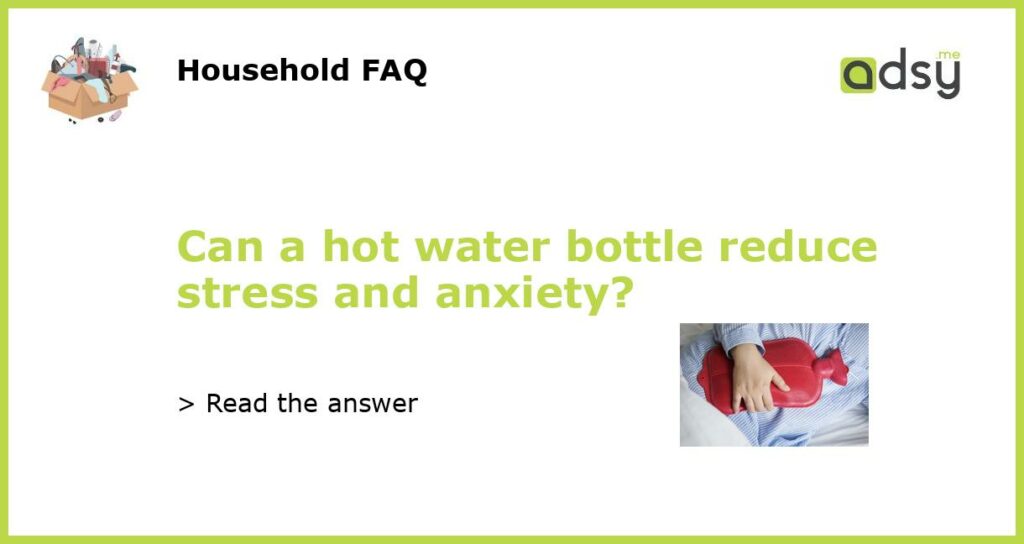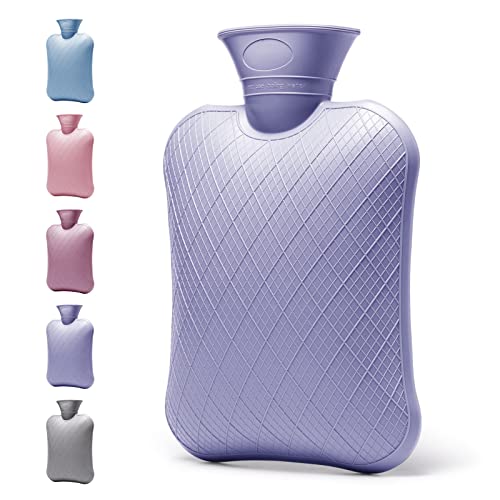The benefits of hot water bottles for stress and anxiety
Many people experience stress and anxiety on a daily basis. There are several ways to alleviate these feelings, including exercise, meditation, and medication. However, one lesser-known method is through the use of a hot water bottle.
How hot water bottles work to reduce stress and anxiety
When you apply heat to your body, it can have a calming effect. This is because heat activates your parasympathetic nervous system, which helps to reduce stress and anxiety. Hot water bottles are an easy, inexpensive way to apply heat to your body. You can place them on your abdomen, chest, or back to help soothe tense muscles and promote relaxation.
The science behind using heat for stress relief
Research has shown that heat therapy can help to reduce stress and anxiety. A study published in the International Journal of Behavioral Medicine found that participants who used heat therapy experienced a decrease in anxiety and an improvement in mood. Another study published in the Journal of Physiotherapy found that heat therapy was effective for reducing muscle tension and promoting relaxation.
Tips for using a hot water bottle for stress and anxiety
If you’re interested in trying a hot water bottle for stress and anxiety, there are a few things to keep in mind. First, make sure you use a high-quality, leak-proof bottle. Second, fill the bottle with hot water, but not boiling water, to avoid burns. Third, place a cloth or towel between the bottle and your skin to prevent burns or discomfort. Finally, use the hot water bottle for 15-20 minutes at a time, and never fall asleep with it still on your body.
Final thoughts on hot water bottles for stress and anxiety
While using a hot water bottle may not be a cure-all for stress and anxiety, it can be a helpful tool for promoting relaxation and reducing tension. If you’re struggling with stress and anxiety, consider giving it a try. However, if your symptoms are severe or persistent, it’s important to seek professional help.






